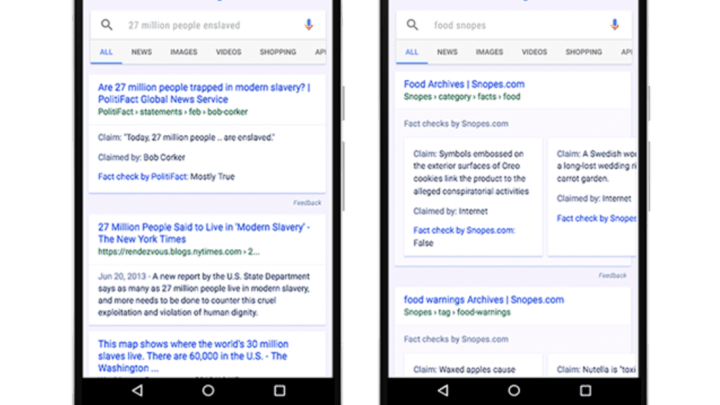In the smartphone era, an argument over facts is likely to end in a web search. Now, Google is taking steps to stop the spread of misinformation before click on any search results. As engadget reports, Google’s new fact check box will flag searches related to disputed topics with disclaimers from second-party sites.
In a blog post announcing the rollout, Google gives a few examples of searches that would activate the feature. The search result for “27 million people enslaved” includes a blurb from PolitiFact that makes the claim (“Today, 27 million people…are enslaved”), the claimer (in this case, chair of the Senate Foreign Relations Committee Bob Corker, who made the statement on MSNBC in February), and the fact check status (according to PolitiFact, this claim is "mostly true"). Ask Google about conspiracy theories related to the Oreo cookie design and a pop-up from Snopes will tell you that rumors connecting Nabisco to Freemasonry are false.
Snopes and PolitiFact are the two main fact-checking resources Google mentions in their statement, but any publisher can become part of the system as long as they meet a strict set of standards. Google rolled out a similar update to their news section in some countries this past October that includes a fact check tag next to sources deemed reliable (rather than screening the actual claims being searched). Like the news feature, the fact check window in Google Search won’t be used to censor dubious content. Instead, it’s meant to ensure users are as informed as possible before heading down any internet rabbit holes.
[h/t engadget]
